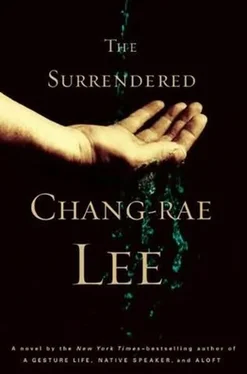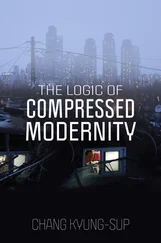With faces black with the flies that swarmed about their wounds, men gazed around them, wild-eyed and helpless. Others were no more than a worm-ridden, inextricable compound of coat and shirt and flesh and blood. Many were shuddering at the thought of being devoured by the worms, which they thought they could see coming out of their bodies (whereas they really came from the myriads of flies which infested the air). There was one poor man, completely disfigured, with a broken jaw and his swollen tongue hanging out of his mouth. He was tossing and trying to get up. I moistened his dry lips and hardened tongue, took a handful of lint and dipped it in the bucket they were carrying behind me, and squeezed the water from this improvised sponge into the deformed opening that had been his mouth. Another wretched man had had a part of his face-nose, lips, and chin-taken off by a sabre cut. He could not speak, and lay, half-blind, making heart-rending signs with his hands and uttering guttural sounds to attract attention. I gave him a drink and poured a little fresh water on his bleeding face. A third, with his skull gaping wide open, was dying, spitting out his brains on the stone floor. His companions in suffering kicked him out of their way, as he blocked the passage. I was able to shelter him for the last moments of his life, and I laid a handkerchief over his poor head, which still just moved.
Hector stopped reading, placing the book on the footlocker that served as his bedside table; he would not look at it again before returning it. He poured himself a teacup of whiskey, though ended up not drinking it. The descriptions matched any number of his memories from the war, and as much as they pained him-an icy clawing at his lungs, puncturing his breath-the feeling soon gave way to a numbing pause. It was a pause not of reflection or reckoning but of a pure self-erasure in which he felt that he had died, or, better, had never existed; that as such he had not had an effect on anything or anyone, going either forward or back; that he had, for a moment, completely disappeared. The solace of this state might have compelled him to read further if not for his deepening curiosity about the book’s owner, this stubborn, jade-eyed woman, quietly fierce and persistent and yet also clearly fragile. Perhaps even infirm. A book was a book, but it was another thing to keep a particular one close, and then one such as this, and he couldn’t help but wonder what private rigor or calamity of hers this tale of woe was shadowing, keeping vigil over.
He waited until Tanner had departed again to return it; the reverend had gone off to Seoul, for a dinner meeting with some other clergy. Just after Sylvie left the children for the aunties to take care of for the rest of the evening he went to the cottage. He knocked on the door and called inside. He knocked again. When there was no response he stepped inside, calling “Mrs. Tanner.” The cottage was a three-room railroad flat, with a front sitting room and a rudimentary kitchen with a washbasin and tub in the middle and at the rear a small bedroom with a window and back door. He had often sat with Reverend Hong in the front room and he was surprised to see that a single cot had been brought in and jammed in the corner, with a proper double bed in the bedroom. The rear door was slightly ajar and when he pulled it in he saw her sitting in a chair in the tiny weed-choked plot with her head down in her lap, like she’d been ill. The sky was a curdled mass of high clouds lit in their bellies by the dusky light, the top of her white blouse aglow like dying coals, cooler blue beneath. She was wearing khaki trousers, but she was oddly barefoot.
“Are you okay?” he said.
She startled with the sound of his voice. “My goodness, you scared me.”
“Sorry.”
“It’s all right,” she said, catching her breath. Her eyes were glassy, shimmering as she looked up at him. But she hadn’t been crying. In fact she now smiled, with a strangely easy languor. “You have my book.”
He gave it to her. She pressed it in her lap and thanked him. It was somehow difficult for him to meet her eyes. Her pupils were so small that the gray-green of her irises seemed as large as coat buttons.
“You left very quickly.”
“Did I?” she said absently. She was now leaning back in the chair like she was near-paralyzed, her wide, pretty mouth slightly hanging open. “Maybe I did. I don’t know why I feel I should be ready and present whenever he comes back. Ames isn’t at all needy, that way, but I want him to see me when he returns, even if he doesn’t care and he’s constantly coming and going anyway. I didn’t even know he was going into Seoul for dinner.”
“Is he coming back tonight?”
“Later, yes,” she said. “Did you look at the book?”
“No,” he answered, though not exactly sure why.
“I’m glad. There’s no reason for you to read it,” she said.
“Why’s that?”
“It’s about a battle. Someone who was a soldier doesn’t need to know any more about that.”
“And you do?”
She was silent for a moment, running her hand over the book’s cover. “Maybe, yes. Like most people, I have my own problems and get wrapped up in things. Everything seems so important. But despite the signs, sometimes I forget what’s happened all around us here. The enormity of it. The cause of all this.”
“You should have been a soldier,” he said to her. “Then you’d be dying to forget.”
Her eyes flashed at him, which at first he took as edged with anger but then realized instead was a disarmed recognition, as if he’d poked through some hard wall. But then she went back to the way she was before, slack again, and she seemed to be washed over by a wave of dizziness and nausea. He asked if she needed to lie down.
“Okay.”
He had to help her to her feet, pulling on both hands, and for a moment she teetered and leaned into him as they went inside. She walked as if the floor were pliant. She passed the bed in the bedroom and when they reached the front room she lay down on her side on the cot in the corner.
“I left the book out there. Again.”
“I’ll get it.”
“Listen, Hector,” she said. He liked the way she said his name, with a faintly Spanish inflection. Not so hard, or Aegean. “I’m so terribly thirsty. Would you get me some water, too?”
Out in the back there was a pump and he let the water run until it was very cold before filling the mug. He picked up the book on the way and when he got back to the front her arms were turbaned about her eyes. He watched her for a long moment.
“Mrs. Tanner,” he finally said, if too softly. She didn’t stir.
He didn’t try to rouse her. He understood now what was the matter with her; he’d seen her kind back in Seoul. Most all of the servicemen and ex-servicemen like himself, and the aid workers and newly arriving businessmen, preferred the scores of lounges and bars, but there were a few places for those who had acquired a special taste, from a stint, say, in Shanghai or Rangoon, or from the treatment of an injury. He examined her closely now, her wrists and her arms, and was surprised to see them unblemished. Perhaps he was wrong. But her leg slipped over the edge of the cot and when he lifted her cool ankle to set it right he could see them, a perfect line, a dozen tiny healed marks tattooing the nook of her heel, the last one still weeping a pin-dot of red.
THE NEXT DAY at the morning meal the Tanners ate among the children, as always, Sylvie’s heel tucked inside her blue canvas sneaker. Hector sat by himself at the far corner of the pavilion. She was animated and laughing and joking with the children and didn’t look over at him, but Tanner acknowledged him with a typically direct, if bloodless, nod. Hector wondered if he even knew about her habit. Maybe she hardly knew herself.
Читать дальше











